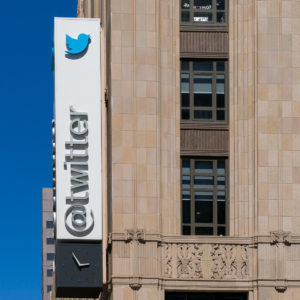Rep. Devin Nunes (R-Calif.) accused Twitter of censoring conservatives and allowing other Twitter users to defame his reputation last week, according a lawsuit filed in the Circuit Court for Henrico County, Virginia.
The suit also names Liz Mair, a Republican communications director, and two Twitter accounts that regularly attack Nunes’ political decisions and positions, Devin Nunes’ Mom (@DevinNunesMom) and Devin Nunes’ Cow (@DevinNunesCow).
The suit against Twitter is unlikely to hold up in court, legal analysts believe, because Section 230 of the Communications Decency Act of 1994 protects tech platforms from legal liability for what their users’ post or upload. On the other hand, Twitter does state in its Terms of Service that it forbids abuse and harassment on the platform and reserves the right to remove content as Twitter sees fit. Nunes claims Twitter refused to remove the Devin Nunes’ Mom and Devin Nunes’ Cow accounts because Twitter harbors an anti-conservative bias and seeks to censor conservatives.
According to the lawsuit, “Twitter creates and develops content, in whole or in part, through a combination of means: (a) by explicit censorship of viewpoints with which it disagrees, (b) by shadow-banning conservatives, such as Plaintiff, (c) by knowingly hosting and monetizing content that is clearly abusive, hateful and defamatory – providing both a voice and financial incentive to the defamers –thereby facilitating defamation on its platform, (d) by completely ignoring lawful complaints about offensive content and by allowing that content to remain accessible to the public, and (e) by intentionally abandoning and refusing to enforce its so-called Terms of Service and Twitter Rules – essentially refusing to self-regulate – thereby selectively amplifying the message of defamers such as Mair, Devin Nunes’ Mom and Devin Nunes’ cow, and materially contributing to the libelousness of the hundreds of posts at issue in this action.”
Despite Republicans’ conviction that tech platforms censor conservatives, Twitter maintains that the platform doesn’t silence particular viewpoints.
Take the Prager University v. Google case, for example. As the Electronic Frontier Foundation points out in a November 2018 amicus brief and blog post regarding the case, tech platforms are notoriously inconsistent about enforcing their content policies. According to the EFF’s own research, Twitter in particular shows no political bias when it comes to removing content and accounts: conservatives and liberals alike face the ax.
Furthermore, the EFF argues, forcing courts to side with users complaining about censorship actually sets a precedent for censorship in itself, because it allows government to decide what speech is allowed on tech platforms.
“Given the long history of governments using their power to regulate speech to promote their own propaganda, manipulate the public discourse, and censor disfavored speech, we are very reluctant to hand the U.S. government a role in controlling the speech that appears on the Internet via private platforms,” wrote David Greene, EFF’s senior staff attorney and civil liberties director, in the Nov. 26, 2018 blog post. ‘The First Amendment prevents the government from dictating content moderation rules and controlling what platforms can and can’t publish.”
Lawyers told the Hill that Nunes’ lawsuit is “frivolous.” Ironically, Nunes co-sponsored the Discouraging Frivolous Lawsuits Act of 2017, which aims to limit the kind of lawsuit Nunes brings.
The accusations against Devin Nunes’ Mom and Devin Nunes’ Cow are on firmer legal ground, but it’s also extremely difficult to win a defamation lawsuit, because the plaintiff bears the burden of proving actual harm. Because the Twitter accounts did not prevent Nunes from reelection in the 2018 midterms (Nunes handily defeated challenger Andrew Janz with 53 percent of the vote), Nunes may find it difficult to prove actual harm.
Some tech experts and other conservatives fear the focus on platform censorship distracts from other, bigger issues within the tech industry, like anticompetitive practices and privacy abuses. The last tech hearing held by the Republican-controlled House in December, for example, failed to probe Google on its anticompetitive practices and privacy abuses because Republicans spent most of the hearing discussing what they perceived as censorship of conservatives.

